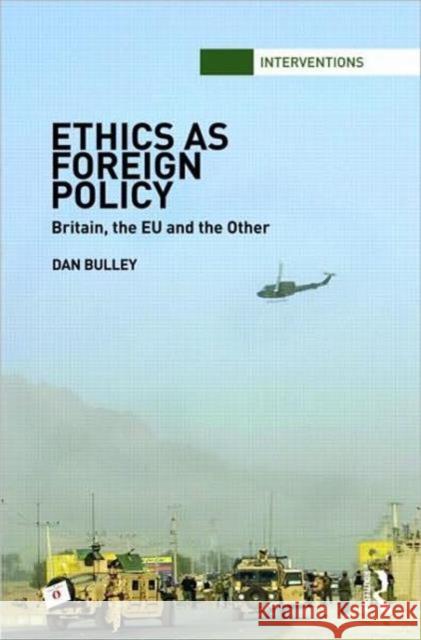Ethics as Foreign Policy: Britain, the Eu and the Other » książka
Ethics as Foreign Policy: Britain, the Eu and the Other
ISBN-13: 9780415483612 / Angielski / Twarda / 2009 / 192 str.
Ethics as Foreign Policy: Britain, the Eu and the Other
ISBN-13: 9780415483612 / Angielski / Twarda / 2009 / 192 str.
(netto: 443,08 VAT: 5%)
Najniższa cena z 30 dni: 459,55
ok. 22 dni roboczych.
Darmowa dostawa!
Ethical foreign policy has often been considered utopian, unrealistic and potentially very dangerous. Dan Bulley argues for a reconceptualisation of ethics as foreign policy, as both look to how we can, and ought to, relate to others. Inspired by the deconstructive thought of Jacques Derrida, Bulley studies the ethical claims of British (1997-2007) and EU (1999-2004) foreign policy. These claims are read against themselves to illustrate their deep ambiguity. A textual analysis of speeches, statements and interviews given by foreign policy makers shows that a responsibility to save 'Africa', to protect Iraqis, and to hospitably welcome the Balkans into the EU are also irresponsible, inhospitable and unethical. The author contends that foreign policies making a claim to morality are ethical and unethical, in their own terms, suggesting that while a truly ethical foreign policy remains ultimately unachievable, it does not justify abandoning a responsible relation to others. Rather, a negotiation of ethics as foreign policy suggests potential individual, context-bound decisions which remain open to contestation and permanent critique. Bulley argues that the goal of ethical foreign policy must be maintained as a productive hope of what is neither completely impossible, nor entirely possible.
This book makes three significant contributions to the discipline of International Relations (IR):
• Firstly, it argues that an ethical foreign policy is neither possible nor impossible, and reconceptualises this dichotomy of possibility/impossibility through the concept of undecidability.
• Secondly, it provides the first comprehensive introduction of Derrida’s conception of negotiation to the fields of IR, Foreign Policy and Ethics. By supplementing undecidability with negotiation, this book puts two previously disparate poststructural concepts into conversation in order to advance current debates.
• Thirdly, it increases understanding of significant periods in British (1997-2007) and EU foreign policy (1999-2004), reading them through the concepts of subjectivity, responsibility and hospitality.











